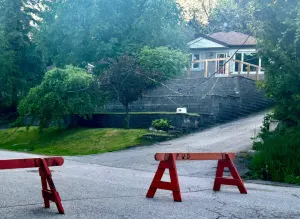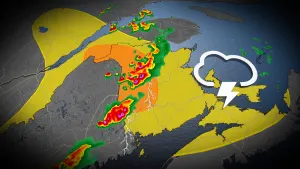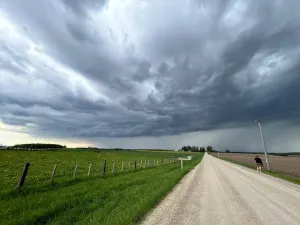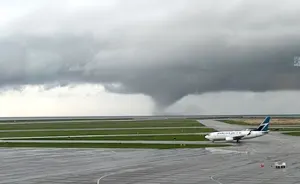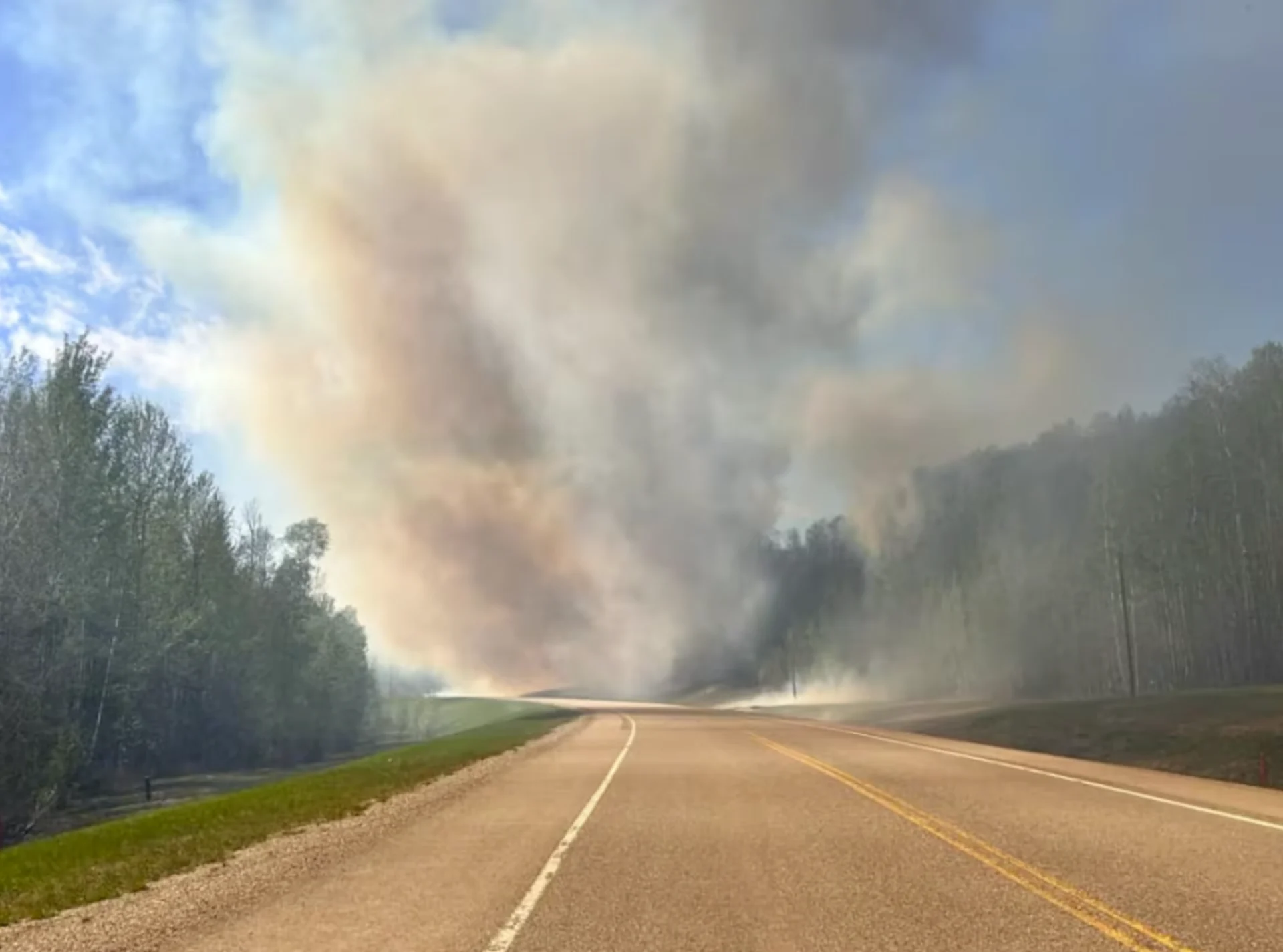
Evacuees in northeast B.C. escape raging wildfire
The latest:
Residents of Fort Nelson and Fort Nelson First Nation should to leave their homes immediately.
Parker Lake wildfire has grown exponentially, and is now within 3.5 kilometres of Fort Nelson.
Evacuees told to drive south to Fort St. John's North Peace Arena, located at 9805 96th Ave.
Those who cannot drive are urged to call 250-775-0933 for support. For emergencies, dial 911.
How to find the full list of wildfires, highway closures and evacuation orders and alerts.
Thousands of people are out of their homes in the northeast B.C. community of Fort Nelson, and the Fort Nelson First Nation, as an out-of-control wildfire burns within kilometres of the town.
The Parker Lake wildfire was first detected just northwest of the community on Friday around 5:25 p.m. PT, but ballooned in size from half-a-square kilometre to nearly 17 square kilometres by Saturday morning — burning just three-and-a-half kilometres away from Fort Nelson, with no further growth observed as of Saturday evening.
The blaze, which officials say started when a tree blown down by strong winds fell onto a power line, sent plumes of smoke toward the community amid an uptick in fire activity across the province with high temperatures.
CANADA'S WILDFIRES: Visit The Weather Network's wildfire hub to keep up with the latest on the active start to wildfire season across Canada.
Thousands of people had to flee the fire and head south to Fort St. John after an evacuation order was issued just before 7:30 p.m. PT on Friday.
"It was a crazy drive. Pretty smoky," said Deborah Erskine, who had to evacuate with her child Nova. "They've managed to keep the fire away from town as far as I know.... It was nose-to-nose traffic to get here last night."
While the drive normally takes around four hours, Erskine said it took nearly six hours to get to Fort St. John — arriving in the town around 3 a.m. PT after a "terrible" drive being blanketed by smoke.
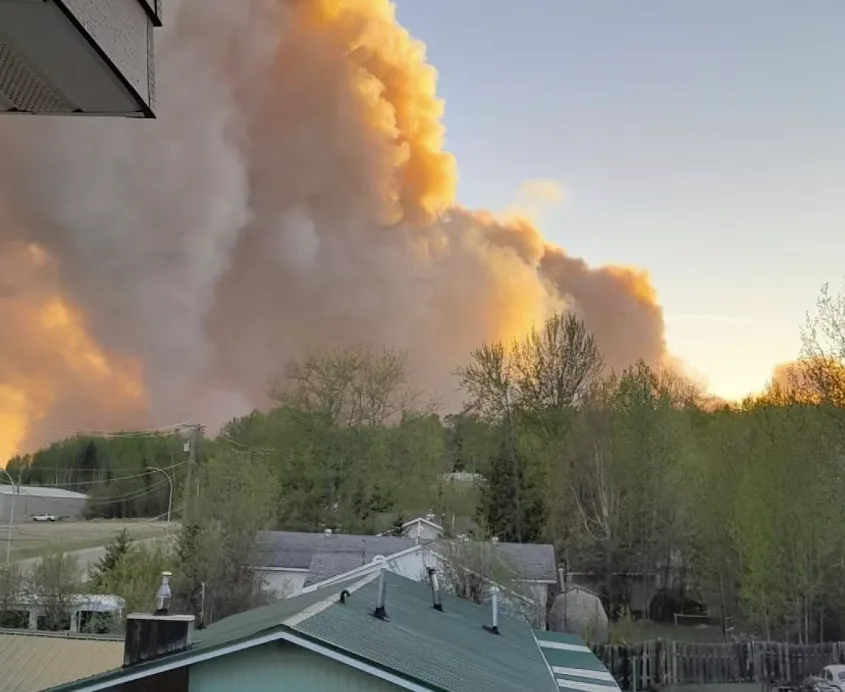
The fire near Fort Nelson, B.C., grew quickly as it was fanned by high winds in a drought-stricken part of the province. (Submitted by Tony Capot-Blanc)
Anyone with the means to travel further is urged to go another 440 kilometres south to Prince George, B.C., where a reception centre has been opened for people fleeing Fort Nelson, the Northern Rockies Regional Municipality (NRRM) said Saturday morning.
The evacuation order is the biggest one so far this year in B.C.'s early wildfire season, with the town having around 3,400 people as of the latest census.
Officials have long been worried about a "challenging" wildfire season this year, as a months-long drought persists provincewide and hot, dry conditions are forecast through the summer.
NRRM Mayor Rob Fraser told CBC News Saturday morning the evacuation of the town went well, and most people had left.
"I am not aware — in my 40 years of being in and around Fort Nelson — that we've ever had to evacuate the entire community," he said.
Chief Sharleen Gale, of the Fort Nelson First Nation, urged everyone in the community to follow the guidance of emergency officials.
SEE ALSO: Cranberry Portage residents evacuate, parts of Hwy 10 close as wildfire burns
"Together we stand united in our efforts to overcome this challenge and emerge stronger," she said in a statement.
In a joint statement, NRRM and Fort Nelson First Nation said people staying behind despite the evacuation orders should be aware that "emergency medical services are not available, nor are groceries or other amenities."
"Utilities may become impacted to support fire response efforts," the statement said. "Communication networks are precarious, which could impact the ability to reach residents to advise of changing conditions."
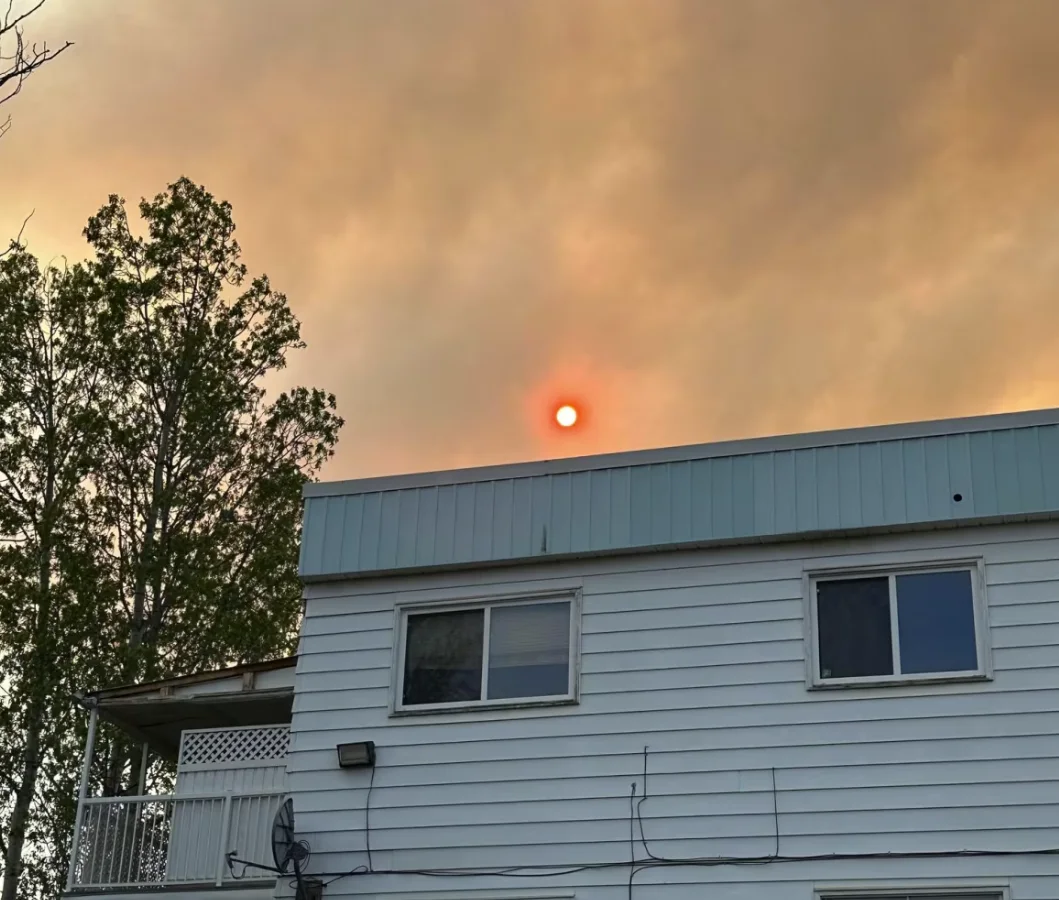
Wildfire smoke obscures the sun in Fort Nelson, B.C. (Submitted by Danielle Sassie)
High winds challenge firefighters
After the tree fell onto a power line, sparking the fire, Fraser told CBC News high winds then whipped up the flames so much that NRRM firefighters couldn't contain it.
Sarah Hall, a B.C. Wildfire Service information officer, said wind gusts of up to 70 km/h accelerated fire growth drastically on Friday evening.
"The fire is reaching the top of the tree canopies, and also projecting forward," she said Saturday morning, describing the fire behaviour as Rank 5 — the second-most extreme on the province's scale.
The continuous drought conditions in the region led to a high fire risk, which combined with the high winds and temperatures to cause particularly aggressive fire behaviour, she said.
B.C. is experiencing a record-low snowpack and drought has plagued much of the province for months. Data from the B.C. River Forecast Centre predicts a long, dry fire season.
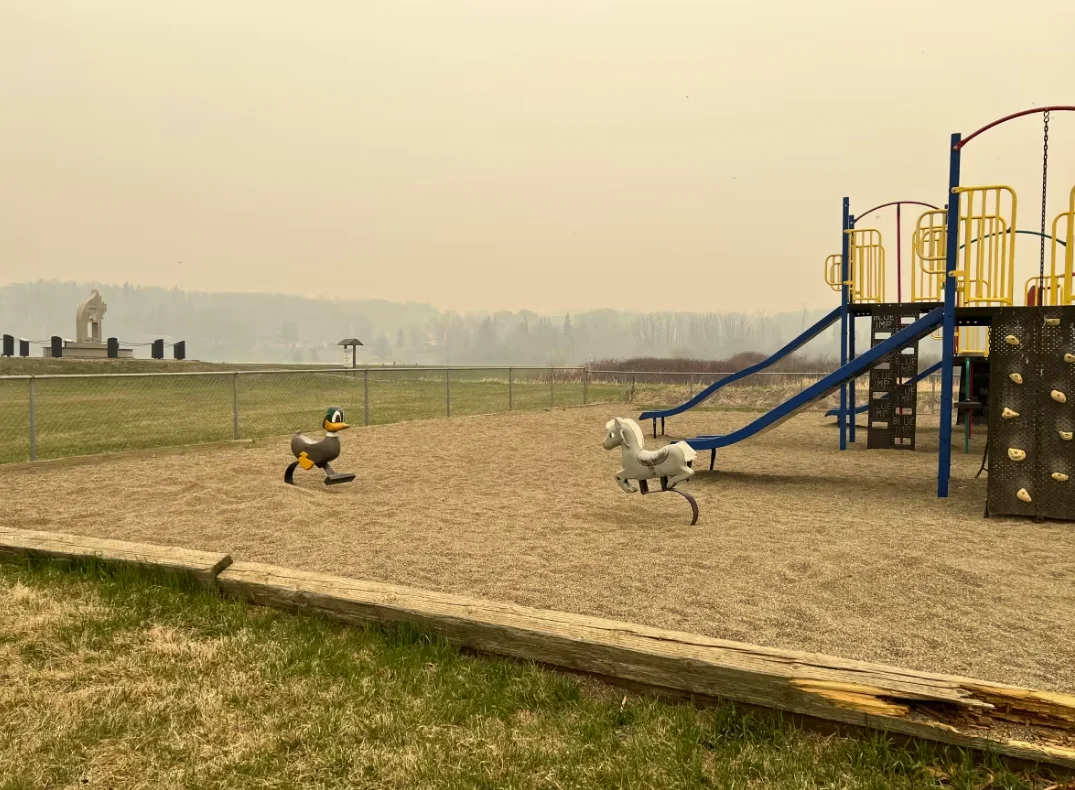
A playground in Fort St. John is blanketed by smoke on Saturday, the day evacuees headed to the community to escape a wildfire near Fort Nelson. (Yvette Brend/CBC)
Only 1 route south
Evacuees have been told to report to the North Peace Arena at 9805 96th Ave. in Fort St. John — about 380 kilometres southeast of Fort Nelson.
Anyone needing with transportation is advised to call 250-775-0933, and the district says evacuees should register on the Evacuee Registration and Assistance website at ess.gov.bc.ca.
DON'T MISS: Best practices to keep yourself safe from wildfire smoke
Northern Health said in a release that Fort Nelson General Hospital has been safely evacuated and is closed until further notice.
The NRRM has also warned that landlines in the region have been affected by the wildfires, although some services in northern B.C. have been restored.
Denise Wortman and Zack Roy both had to leave their homes to come to Fort St. John, and described having hardly slept amid heightened stress and anxiety.
"It's hard to breathe — worried about our homes and stuff," Wortman said. "But it is what it is, right?
"Hopefully, we'll still have a home to go back to."
Environment Canada is not forecasting rain in the area until Wednesday evening and is predicting only a 60 per cent chance of showers for that night and Thursday.
"It doesn't look like there's going to be much precipitation through that area for the next couple of days at least, unfortunately," meteorologist Heather Rombough said. "By early next week there might be a little bit, but really nothing significant."
Thumbnail image credit to Angela Klondike via CBC News.
This article was written by and published for CBC News on Saturday, May 11. With files from Yvette Brend, Andrew Kurjata, Liam Britten and The Canadian Press.






